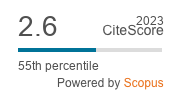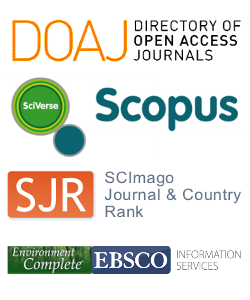We log anonymous usage statistics. Please read the privacy information for details.
Call for Papers: Italian landscapes towards 2030: Identity, Care and Perspectives
Living Special Issue opened: 2022 (new!) - ongoing

Guest Editors / Edited by:
Claudia Canedoli, Università Milano-Bicocca, Ital Website
Rosario Schicchi, Università degli Studi di Palermo, Italy Website
Emilio Padoa-Schioppa, Università Milano-Bicocca, Italy Website
The Special Issue is coordinated in cooperation with SIEP-IALE Italy
Care and Perspectives The future trajectories of Italian landscapes are a topical subject. Ecosystems in good ecological state, able to provide a contribution to human well-being are recognized as the basis for the sustainable development of economy and society everywhere. Global data demonstrate that in the last twenty years the Economic Capital per capita has doubled, Human Capital per capita has increased of 13%, Natural Capital per capita has decreased by almost 40% (The Economics of Biodiversity, 2021).
The new ecological transition, linked to the Recovery Plan also imply a deep change in Italian landscapes. The need of an economic recovery increases the risk of further impact on landscapes, ecosystems and biodiversity, despite the “do no significant harm” (DNSH) principle of the EU Commission. LE can help us to overpass the DNSH principle towards the DSEB (Do Significant Ecological Benefits) that meets much better with the transition needs and the urgency to stop ecosystems and landscapes degradation within a holistic approach.
The main task for landscape ecologists is to provide a theoretical reference framework and practical tools to design and or evaluate each project that imply land transformation. In this direction, LE's multidisciplinary and cross-scale methods and tools are ready to use not only for the ecological but also the social components of landscapes; the documentation related to the work on the Legacy of the World Congress 2019 (CIT) and the effort that SIEP-IALE is carrying out in the dialogue on these issues with the Public Administration is extraordinarily useful. The targets set for 2030 by the new EU Biodiversity Strategy and the UN Sustainable Development Goals, and for 2050 for decarbonisation, presents Italy with a unique opportunity. But they could also be a great threat, without a concrete roadmap and the ability to verify synergies and conflicts within the different actions and between the actions and the ecological system. There are three keywords that are linked to this transition: Identity, Care, and Perspectives
Identity means knowing and recognising our landscapes and ecosystems. What characterises them, what are their peculiarities? What services do they specifically offer? And with which tools can we describe their structure and functions? Which parts (or characteristics) of the current landscapes should we try to preserve and care for and which should we change?
Care means the commitment to direction, planning and management that we want to give to work on Italian landscapes over the next decade. We have chosen the word care because it forces us to bear in mind that a cluster of interacting ecosystems (as Forman defines it) is part of the biological spectrum, and interventions on it must always consider that the landscape is a living reality, which is shaped by the several interactions of its components.
Perspectives means showing the way, draw the strategies and not only just identifying problems, as we have often tried to do as a SIEP-IALE society, trying to support the stewardship of our common goods . For this reason, the prospect of decarbonising the Italian economy (a necessary and unmissable goal) must be accompanied by a perspective that has solid ecological roots and a systemic, synergistic, medium-to-long term vision. For example, to develop, and not miss, ecosystems services while developing green energies.
An effective and sustainable decarbonisation can only be achieved with the right and balanced development of Natural Capital, Human Capital and Economic Capital.
To achieve theses aims, we need interactions between PNRR (National Plan of Recovery and Resilience), other investments, policies and even reforms, to develop the indispensable practical, enabling tools we lack now, to experiment, monitoring, better understand and take the right cares of the different landscapes.
The special issue we propose will accept contributions linked to any of the aforementioned topics, applied to Italian landscapes. We would like to encourage in particular contributions written by mixed groups, which include scientists from different disciplines and public or private actors (politicians, technicians, experts….)
If authors want their manuscript considered for this special issues please mention during the submission process in the cover letter using the text field Comments for the Editor.






